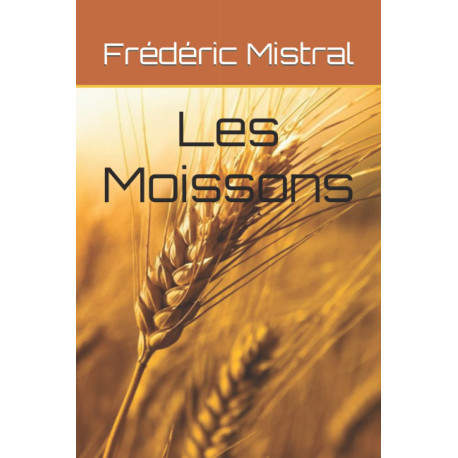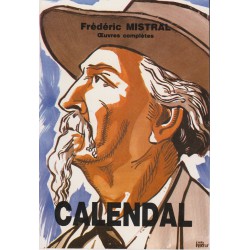Recently added item(s)
No products
Product successfully added to your shopping cart
There are 0 items in your cart. There is 1 item in your cart.
Mistral and friends
- New Selection
- Books
- Music
- Videos - DVD
- Miscellaneous
- Revues, Journaux
Links
Les moissons - Frédéric MISTRAL (Alain Viau)
L-9798488457386
New
1 Item
Available
15,00 €
Les moissons - Frédéric MISTRAL. This new translation into French verse makes it possible to rediscover and appreciate the poems and tales of Frédéric Mistral, winner of the Nobel Prize for Literature in 1904. Translation Alain VIAU. Self-edition.
Data sheet
| Type | Paperback |
| Year | 2021 |
| Language | French + Occitan Provençal |
| Pages | 156 |
| Format | 15 x 22,8 cm |
| Distributor | Alain VIAU |
| ISBN | 979-8-48845-738-6 |
More info
Les moissons - Frédéric MISTRAL
Translation Alain Viau
This new translation (2021) into French verse allows us to rediscover and appreciate the poetry of Frédéric Mistral, winner of the 1904 Nobel Prize for Literature. This poem is a true ethnographic study of the life of the harvesters of his time. It describes with great poetry the organization of the work of the harvesters, the role of each one, the relations between them, their meals and their festivals.
Frédéric Mistral showed a particular affection for the gleaners because it was while doing the gleaning that his mother, the daughter of the mayor of Maillane, met her father, a rich farmer.
He is one of the few to have detailed the different varieties of ancient Provençal wheat, some of which have disappeared and others which have been happily rediscovered after more than a century of selection of seeds that are more productive but less tasty, less resistant and less well adapted to the country's climate.
This bilingual edition, with the original text in Provençal and a new translation by Alain Viau, in French verse, allows everyone to appreciate Frédéric Mistral's poetry and his depth of vision.
Throughout this Song, we are immersed in the rural world of 19th century Provence.
Self-edition, bilingual French and Provençal.
The author :
Frédéric MISTRAL, born in Maillane in 1830 and died in Maillane in 1914, winner of the Nobel Prize for Literature in 1904, is originally an immense work written in Provençal.
Translator : Alain VIAU
Extract:
Se couchon d’ouro e se lèvon matin,
An pas li costo en long ; la matinado,
Dis lou prouvèrbi avanço la journado,
E la meissoun se’ n cop’s entamenado,
Fau pas cerca d’alongui pèr camin.
Arriba’u champ, quiton si camisolo,
Queto afecioun ! devourisson li blad,
Que siegon clar, espés o tout gibla
Rèn ié fai rèn, lou voulame s’afolo,
E vai d’un vanc, rounflo que fai trambla.
Couchés de bonne heure et levés matin,
Ils n’ont pas les côtes en long ; Matinée,
Dit le proverbe, avance la journée,
Et la moisson, une fois entamée,
Il ne faut pas s’attarder chemin.
À peine au champ, adieu les camisoles,
Quelle ferveur ! Ils dévorent les blés,
Qu’ils soient tous tordus ou clairs ou épais.
Rien ne leur fait, la faucille s’affole,
Va d’un trait, rafale qui fait trembler.
Reviews
No customer comments for the moment.
 English
English Français
Français Occitan
Occitan











